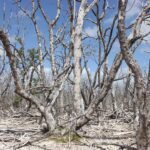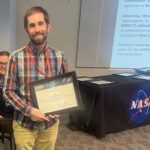ESSIC Assistant Research Professor Thomas Wild recently co-authored a study titled “Pathways to 2050: Alternative Scenarios for Decarbonizing the U.S. Economy” alongside colleagues including Jae Edmonds, School of Public Policy Adjunct Professor and Leon Clarke, Research Director for UMD's Center for Global Sustainability.
The study is focused on leveraging industry perspectives to improve scenarios and roadmaps for decarbonization of the US economy. It contains three scenarios for reducing U.S. greenhouse gas emissions 80 percent from 2005 levels by 2050 and discusses their key policies and other drivers.
The researchers found that decarbonizing the U.S. economy requires fundamental shifts in the ways we generate energy, produce goods, deliver services, and manage lands. These shifts can be achieved through various means, but unanimously require high levels of public support, expressed through stronger demand for effective policies and/or low-carbon goods and services.
Wild is also jointly appointed as a research scientist at the Pacific Northwest National Laboratory's Joint Global Change Research Institute. His background is in systems analysis and hydrology, with a focus on developing and applying novel modeling tools and decision support frameworks for solving complex systems problems that occur at the intersection of disciplines.
To read the report, see here: "Pathways to 2050 Alternative Scenarios for Decarbonizing the U.S. Economy".





